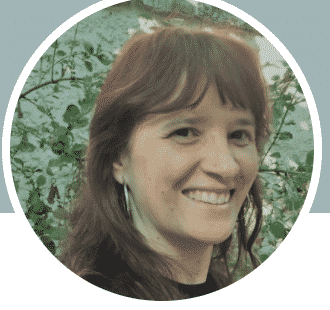What is the Network for Business Sustainability?
The Network for Business Sustainability (NBS) is a non-profit advancing sustainable development to build a fairer and more environmentally sound future.
We aim to improve business practice by facilitating knowledge sharing across an international community of business leaders, scholars, students and policy makers. With these stakeholders, we co-create high-quality content that enables practical action. Our content focuses on 6 critical sustainability themes, from climate change to social justice.
Each month, more than 40,000 people from around the world engage with our work. We also facilitate a community of 190+ sustainability research centres in business schools around the world.
Founded in 2008, NBS is housed at the Centre for Building Sustainable Value at the Ivey Business School (Western University, London, Canada). Ivey Business School’s purpose is to inspire leaders for a sustainable and prosperous world.
6 Knowledge Hubs enable learning and impact
NBS members envision a world in which business activity helps communities flourish within planetary boundaries. With input from our community, we’ve developed 6 Knowledge Hubs around today’s most pressing business sustainability issues. Each offers definition, analysis, and solutions. Knowledge Hubs are also a platform for building partnerships and engaging in dialogue.
Topic-focused Knowledge Hubs make it easier to find content and connect with others in your area. Because sustainability requires thinking about how issues intersect, we also look at how these areas relate to each other: How climate change might affect social justice, for example. Ultimately, we’re working toward systems change.
Do you want to get involved?
- Contribute your expertise for future NBS content
- Partner with NBS to drive forward our Knowledge Hubs
- Follow us on social media (LinkedIn, Twitter, Facebook, or Instagram)
Thoughts from current members





Examples of our work
Here are some of the recent questions our members have addressed. Subscribe to our newsletter to receive monthly content and invitations to share your own questions and insights.
Many organizations are finding their role in sustainable development by aligning actions with the SDGs. But, to make progress on any SDG, research shows we need to understand how culture and social norms affect outcomes.
For example, researchers Meital Rosenberg and Daniel Armanios learned that gender roles in Gujarat, India, made it difficult for women to benefit from greater access to electricity.
Based on their experience, they share 3 tips for organizations tackling the SDGs:
- Connect with local and grassroots organizations
- Give community members decision making power
- Recognize social constraints and work with (and around) them
Adanma Onuoha has been working in digital marketing for years. When she joined NBS to support our Marketing and Search Engine Optimization efforts, she found herself asking the question: What does sustainable marketing mean? How can marketers practice it?
In this article, she shares her journey in unpacking this topic.
What she learned: There are many “little steps” that marketers can take to steer their organizations toward sustainability.
Whether you work in product development, marketing strategy, advertising or partnerships – you have the power to take action! Learn how.
Reputation management can be a low priority during crises like COVID-19 or the financial crisis. Leaders are often trying to keep doors open and revenues stable. Why keep focused on long term sustainability issues when there are short term fires to put out?
To find out, researchers Nareuporn Piyasinchai and Matthew Grimes studied how ESG reputation affected companies during and after the 2008-2009 financial crisis.
Their lesson: Corporate reputation – especially for ESG performance – is more important during times of crisis than ever. If your company keeps a positive sustainability reputation during the COVID crisis, you’ll be able to improve stakeholder relationships over the long-term.
During crises, Nareuporn encourages managers to: remain focused on ESG practices, prepare for public scrutiny, reinforce communication and transparency, and break the cycle in the face of setbacks.
Join us. It’s free. It’s valuable.
If you’re working to make business more sustainable, we hope you’ll join the network by subscribing to our newsletter. That’s where you’ll find the latest content and calls to contribute your own ideas. All geographies, disciplines and career stages are welcome.
About our team
Want to learn more about the small but mighty team that facilitates this work? Check out our profiles.
Our Land Acknowledgement
The Network for Business Sustainability (NBS) is housed at the Ivey Business School on the traditional lands of the Anishinaabek, Haudenosaunee, Lūnaapéewak and Attawandaron peoples. We, the NBS team, acknowledge the severity of both historical and ongoing injustices faced by Indigenous groups in Canada due to settler colonialism. We recognize Indigenous peoples as the original stewards of this land and will endeavour to promote stewardship practices to protect the regenerative capacity and biodiversity of the land.
We encourage our global community to reflect on the land on which they live, learn and play. It is important to understand how we each fit into the land's history in order to ensure a respectful, prosperous and sustainable future.
NBS commits to amplifying Indigenous businesses and activities through social media channels and sharing our platform with diverse voices that must be heard in order to accomplish our mission.
About our logo
NBS Founder Tima Bansal describes the origin of the NBS logo: "I selected the trefoil because it is the simplest complex knot in mathematics. Mathematics is the only discipline with a universal language; sustainability should also be a universal language. I also like the imagery of a knot, because it is a continuous loop that circles back on itself, which represents connectedness. Finally, we made the loops sufficiently large to represent economy, environment and society, but with a large centre to show how they support the core."







